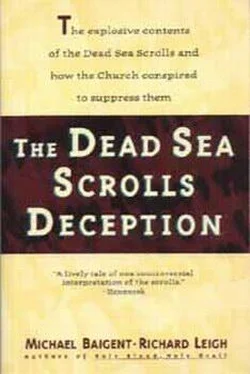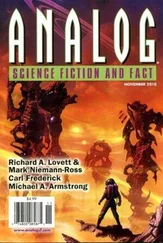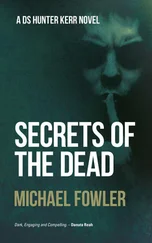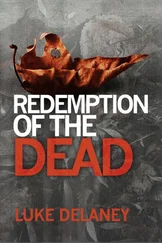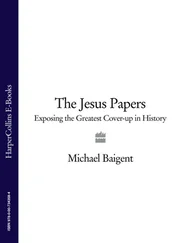More promising still, Milik, in 1990, surrendered a second text, this time to Professor James VanderKamm of North Carolina State University. VanderKamm, in a break with the international team’s tradition, promptly offered access to other scholars. ‘I will show the photographs to anyone who is interested in seeing them’, he announced. 3Milik, not surprisingly, described VanderKamm’s behaviour as ‘irresponsible’. 4VanderKamm then withdrew his offer.
An important role in the campaign to obtain open access to the Dead Sea Scrolls was, as we have already indicated, played by Hershel Shank’s journal, Biblical Archaeology Review. It was BAR that fired the opening salvo of the current media campaign, when in 1985 it published a long and hard-hitting article on the delays in releasing Qumran material. And when Eisenman obtained a copy of the computer print-out listing all the fragments in the international team’s possession, he leaked this document to BAR. He thus furnished BAR with invaluable ammunition. In return, BAR was only too eager to provide publicity and an open forum.
As we have also noted, however, BAR’s attack, at least in part, was directed at the Israeli government, whom it held as responsible for the delays as the international team themselves. 5Eisenman was careful to distance himself from BAR’s position in this respect. To attack the Israeli government, he felt, was simply to divert attention from the real problem — the withholding of information.
Despite this initial difference of approach, however, BAR’s contribution has been immense. Since the spring of 1989, in particular, the magazine has sustained a relentless, non-stop barrage of articles directed at the delays and deficiencies of Qumran scholarship and research. BAR’s basic position is that, ‘in the end the Dead Sea Scrolls are public treasures’. 6As for the international team: ‘The team of editors has now become more an obstacle to publication than a source of information. ‘ 7 BAR has in general pulled very few punches and, indeed, often comes very close to the legal limits of what can be printed. And while Eisenman may not have shared BAR’s eagerness to attack the Israeli government, there is no question that those attacks have helped to produce at least some results.
Thus, for example, the Israeli authorities were persuaded to assume some measure of authority over the unpublished Qumran material. In April 1989 the Israeli Archaeological Council appointed a ‘Scroll Oversight Committee’ to supervise the publication of all Qumran texts and ensure that the members of the international team were indeed fulfilling their assigned tasks. In the beginning, the creation of this committee may have been something of a cosmetic exercise, intended merely to convey the impression that something constructive was being done. In practice, however, as the international team have continued to drag their feet, the committee has assumed more and more power.
As we have noted, Father Benoit’s timetable, according to which the whole of the Qumran material would be published by 1993, was superseded by Strugnell’s new and (theoretically at least) more realistic timetable, with a deadline of 1996. Eisenman had remained profoundly sceptical of the team’s intentions. BAR was more vociferous. The ‘suggested Timetable’, the magazine proclaimed, was ‘a hoax and a fraud’. 8It was not signed, BAR pointed out; it technically bound no one to anything; it made no provision whatever for progress reports or proof that the international team were actually doing their jobs. What would happen, BAR asked the Israeli Department of Antiquities, if the stipulated deadlines were not met?
The Department of Antiquities did not reply directly to this query, but on 1 July 1989, in an interview with the Los Angeles Times, Amir Drori, the department’s director, issued what might be construed as a nebulous threat: ‘For the first time, we have a plan, and if someone does not complete his work on time we have the right to deliver the scrolls to someone else.’ 9Strugnell himself, however, in an interview with the International Herald Tribune, made clear how lightly he took such threats. ‘We are not running a railroad’, 10he said. And in an interview with ABC Television, he was even more explicit: ‘If I don’t meet [the deadline] by one or two years, I won’t worry at all.’ 11Milik, in the meantime, remained, as Time Magazine put it, ‘elusive’, although the magazine did manage to extract one characteristically arrogant statement from him: ‘The world will see the manuscripts when I have done the necessary work.’ 12
Justifiably unappeased, BAR continued its campaign. In the ABC Television interview, Strugnell, with somewhat lumbering humour, and manifest contempt, had complained of the recent attacks to which he and his colleagues had been subjected. ‘It seems we’ve acquired a bunch of fleas’, he said, ‘who are in the business of annoying us.’ 13 BAR promptly ran a signally unflattering photograph of Professor Strugnell surrounded by ‘named fleas’. In addition to Eisenman and Davies, the ‘named fleas’ included Professors Joseph Fitzmyer of Catholic University, David Noel Freedman of the University of Michigan, Dieter Georgi of the University of Frankfurt, Norman Golb of the University of Chicago, Z.J. Kapera of Krakow, Philip King of Boston College, T.H. Gaster and Morton Smith of Columbia, and Geza Vermes of Oxford University. BAR invited all other biblical scholars who wished to be named publicly as ‘fleas’ to write in. This invitation elicited a stream of letters, including one from Professor Jacob Neusner of the Institute for Advanced Study at Princeton, author of a number of important works on the origins of Judaism and the formative years of Christianity. Speaking of the international team’s work, Professor Neusner described the history of the Dead Sea Scrolls scholarship as ‘a monumental failure’, which he attributed to ‘arrogance and self-importance’. 14
By the autumn of 1989, we had already begun to research this book and, in the process, to become embroiled, albeit quietly, in the controversy. On a trip to Israel to gather material and interview a number of scholars, Michael Baigent decided to check on the so-called ‘Oversight Committee’, recently formed to supervise the work of the international team. In theory, the committee might be anything. On the one hand, it might be a ‘paper tiger’, a means of formally institutionalising official inaction. On the other, it might offer a real possibility of power being taken from the international team and placed in more assiduous hands. Would the committee merely serve to cosmeticise further delays? Or did it possess both the authority and the will to do something constructive about the existing situation?
Among the individuals making up the committee were two members of the Israeli Department of Antiquities — Amir Drori, the department’s head, and Mrs Ayala Sussman. Baigent had arranged initially to speak with Drori. On his arrival at the Department of Antiquities, however, he was urged to speak instead with Mrs Sussman, who presided over the sub-department in charge of the Qumran texts themselves. Drori, in other words, had a number of matters on his plate. Mrs Sussman’s activities were focused more specifically on the scrolls.
The meeting with Mrs Sussman took place on 7 November 1989. She clearly, and perhaps understandably, regarded it as an unwelcome intrusion on her already busy schedule. While being scrupulously polite, she was also therefore impatient, dismissive and vague, vouchsafing few details, endeavouring to get the conversation over with as soon as possible. Baigent was also, of course, polite; but it proved necessary for him to become tiresomely insistent, conveying the impression that he was prepared to wait in the office all day unless some answers to his queries were forthcoming. Eventually, Mrs Sussman capitulated.
Читать дальше
